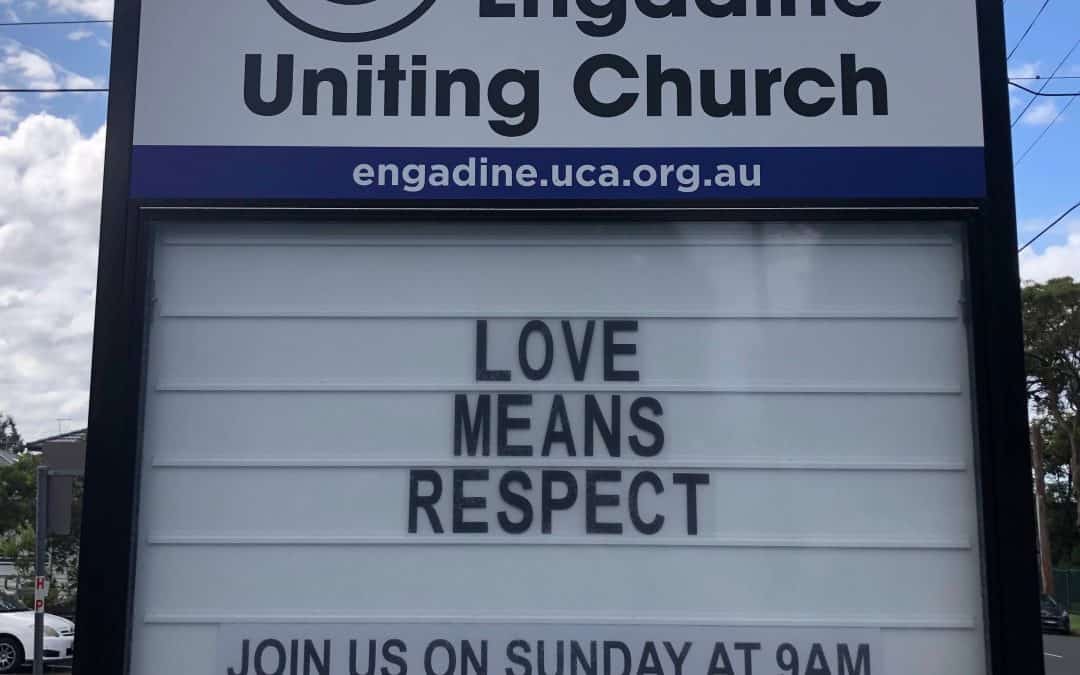The classic Biblical passage on the nature of love (1 Corinthians 13) – love is patient, love is kind, it does not keep a record of wrongs, and so on – describes an attitude of respect. Love respects the beloved; love does not seek to abuse, control or manipulate the beloved.
In the past, the church has often failed to protect people in abusive relationships by prioritising virtues such as forgiveness, patience or even politeness over the health and safety of people who need support. In the 21st century, we are finally catching up and learning how to do better. The Uniting Church has recently developed a whole deck of resources, “Beyond Violence”, to raise awareness about domestic violence and educate congregations in how to best support those in their midst who need it. We are learning to speak up about respect and consent.
Today’s sign also reaches out more broadly beyond romantic love to take aim at some claims about love that have been made in recent weeks, most often by church or school leaders who publicly avow their institutional love of students with diverse expressions of gender or sexuality, while at the same time speaking loudly and very clearly about the sinful nature of those expressions (as defined by the institution’s widely publicised statement of belief).
Children who are quite uncertain about their developing sexuality and gender identity and those who identify LGBTIQ+ are amongst the most vulnerable in a school setting. How much more vulnerable is a child of Christian parents who is sent to a school that regularly preaches about the sinful nature of their emerging identity? A church pastor writes here about his decision not to enrol his child in a Christian school even though he attended one himself (Guardian Australia; 3min read).
All of our church staff, elders, parish councillors and anyone else in a position of authority or trust undertakes triennial Safe Church training to fully understand and implement practices that not only ensure but actively demonstrate full respect for everyone with whom we interact, creating safe spaces for all. We are still on a journey of learning better ways to speak and act and will not ever consider that we have ‘arrived’ but continue to seek to be a place of welcome and inclusion for all people.



Recent Comments